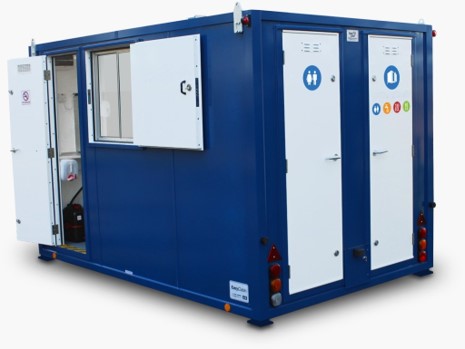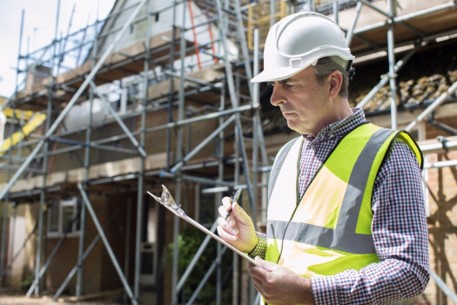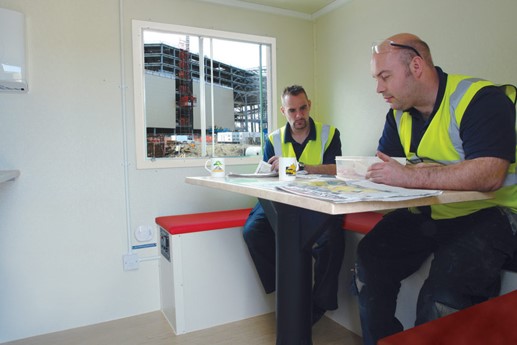Ensuring your staff’s safety should be of the utmost importance during any project, but it’s especially important for those working in careers where danger is a higher probability, or where those dangers are exceptionally high-risk to an individual’s health. In this blog, we’re offering some health and safety tips for those working construction – a career which generally scores quite highly for its worker’s levels of happiness but undoubtedly comes with its own dangers as workers face dangerous equipment on a routine basis.

1) Regular Safety Workshops
Teaching and reminding your staff about your safety procedures should be a common procedure in most businesses, but that doesn’t make it any less important an activity. If anything, the commonplace nature of safety workshops may cause people to underestimate their worth, because it’s hard to see how disastrous a workplace could become without them.
For example, studies have shown that the age group most likely to suffer from dangerous, life-threatening incidents in the underwater welding sector are actually the most experienced welders aged between 35 and 40 years. The reasoning behind this could be that workers grow desensitised to the dangerous nature of their environments, and eventually grow lax on the safety procedures that they deemed far more important when they worried about their environment.
To prevent this from occurring in your business, you should aim to continue educating your staff, irrelevant of their level of experience, on how to recognise and prevent the dangers inherent in their vocation.
2) Regular Equipment Checks
Thorough equipment checks will also help your company to prevent any unwanted surprises. You should be checking the quantity and quality of your equipment to ensure that there are no mishaps. For example, you’ll want to be sure that there are always enough dust masks for your employees, and that those dust masks are of a high-quality.
3) Regular Staff Check-Ins
Sometimes it isn’t that the equipment is faulty, it’s that it doesn’t serve it’s intended purpose quite as well as you (and your employees) were hoping it would. It is important to speak to your staff about any concerns they have over the equipment that they are using so that you can identify any issues that may arise before they become a real problem, or even worse – an accident.
For example, it is true that thick, insulator gloves have helped many builders avoid accidents in the workplace, but it is also true that some workers have reported difficulties in handling large glass structures (such as windowpanes) when using gloves. This is because the gloves reduce the builder’s ability to feel the glass, and so it reduces their grip on the pane.
This may lead to staff generating a dislike for the safety procedure gloves, and a fear that they’re going to end up breaking company property by accident. It is a manager’s responsibility to speak to their staff and ensure that these concerns are heard before, and not after, an accident. If addressed properly, it may be that your company invests in an alternative method of keeping its staff safe, if not addressed at all, then workers could forego the safety procedures and cause themselves accidents that reflect badly on your company.

4) Invest in Portable Onsite Accommodation
It’s important to recognise that your workers need somewhere to rest. Our portable site accommodation can provide your workers with a place to spend their lunch in peace, a place where they don’t have to be thinking about the dangers of their normal working environment.
Portable onsite accommodation is also important for looking after your staff’s mental health, as well as their physical. Providing a safe space for your staff where they can relax with a hot brew during breaks or lunch will enable them to tackle the rest of the day with more energy than had they not been afforded that break from work. Your onsite accommodation can also be the place where emergency meetings are held – a safe space away from a prying client and out of the elements where important words can be lost to a strong wind.
Portable onsite accommodation can also be a good place to store any emergency first aid. As construction work often involves handling dirty or dusty objects, it is good to ensure that there is a place where good hygiene is maintained so any wounds can be treated with a minimum risk of infection.

As well as our mobile welfare units in London, we also offer site cabin hire and steel storage hire in London for keeping your tools safe during a project. We have various anti-vandal units too if theft is a concern, and we recommend that you contact us for more information regarding our services.

